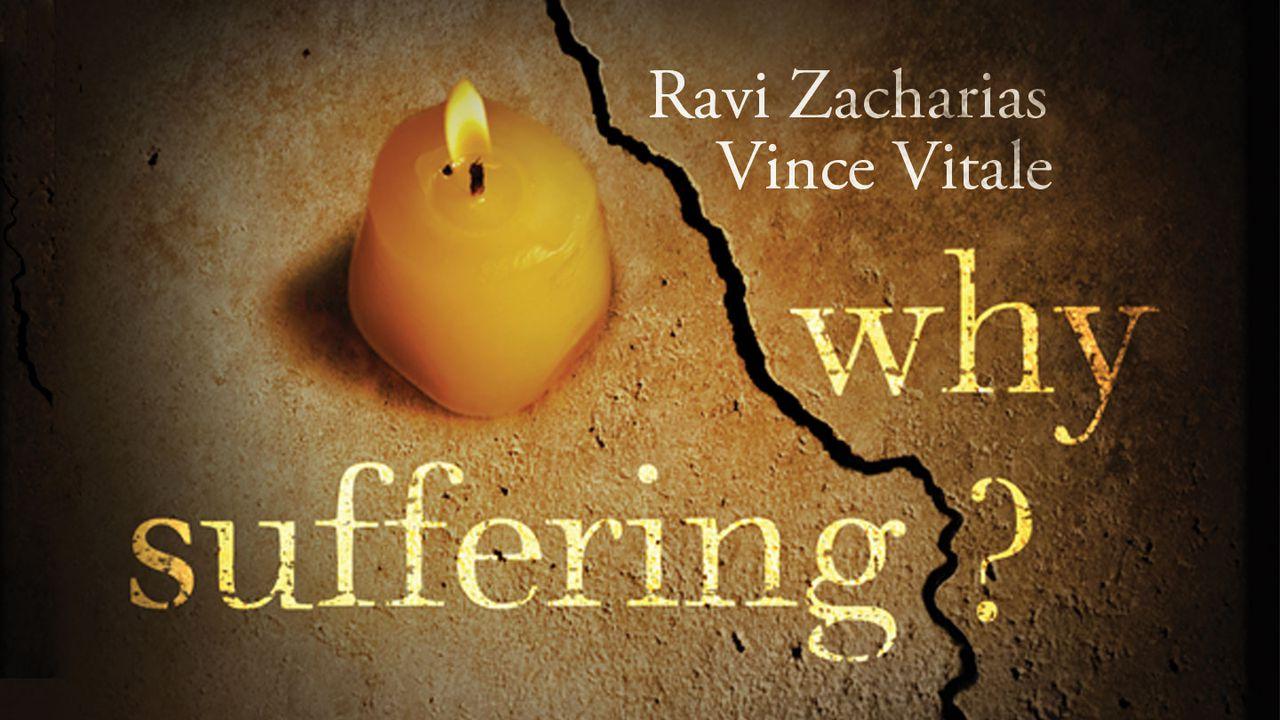Why SufferingMuestra

Hope Beyond Suffering
Billy Graham once said, “Someday you will read or hear that Billy Graham is dead. Don’t you believe a word of it! I shall be more alive than I am now. I will just have changed my address. I will have gone into the presence of God.”[1] What a blessing to be able to speak those words with confidence, to know in your heart that death really is, to borrow the words of Aldous Huxley, an “unfounded rumour,”[2] that you’re not just headed for death, but that every day you’re headed for greater and greater life.
The Bible says that in heaven God “will wipe every tear from [our] eyes;” there will be “no more death or mourning or crying or pain” (Rev. 21:3-4).
Nothing brings greater hope in the Christian faith than the fact that the relationship God desires with each one of us is not fleeting or for a time only. Because Jesus endured suffering to the end, and yet by His resurrection proved that death is not the end, our friendship with God can be for all eternity.
God knows that one day soon He will take us out of suffering, He knows that what He can take us to will be a state of great joy, and He knows that from the perspective of eternity the vast majority of our lives can be spent without brokenness, burden, or sorrow.
On the Christian understanding of reality, what we currently see is only the first few moments of life—literally just the birthing process of human history. If we assume these first moments are all there is to life, then we may very well doubt the goodness of the Creator. But this doubt will be overcome when our view is widened and becomes the view from eternity.
We will always come up short if we attempt to find the full explanation for suffering in this life alone. This life is only the smallest fraction of our lives. We are going to live forever! And even though right now we live in a harsh broken world, Jesus promises that one day “everyone who calls on [Him]” will live in a world that will be good to us (Rom. 10:13; Acts 2:21; Joel 2:32).
With God, our childhood optimism was correct. We do have reason to hope, to hope amidst the brokenness of this world and to hope beyond that brokenness as well. Perfect love is real; we can live forever; there is no limit; things can get better.
When things get worse before they get better, God is with us. And as we look to the future we can trust in the words of Jesus: “I am the resurrection and the life. The one who believes in me will live, even though they die; and whoever lives by believing in me will never die. Do you believe this?” (John 11:25–26).
Life after death, on its own, doesn’t bring hope. Only grace brings hope. And there is no grace as extravagant as the grace of Jesus Christ. And as grace upon grace—because Jesus has already done everything necessary for us to be right with God—this greatest of all hopes can be received with a simple heartfelt prayer.
When suffering comes, when death comes, who will bear it with us? Who will see us through it?
Jesus will, if we ask Him to. He won’t force Himself into our lives. But if we invite Him, then we will never be alone in our suffering, and we can trust that we will spend eternity in a place where suffering will be no more.
Reflection Questions
- Resurrected life with God will be eternal and unending, as well as devoid of pain and suffering. Why does it therefore follow that the proportion of existence spent amidst pain and suffering will continually diminish as eternal life goes on?
- Why does the afterlife only bring hope if coupled with grace?
Bible Verses
- Revelation 21:3-4
- Romans 10:13
- Acts 2:21
- Joel 2:32
- John 11:25–26
Citations
[1] This quotation is shared by the narrator in Billy Graham: God’s Ambassador, directed by Michael Merriman (Spring House, 2006), DVD. It is most likely an adaptation of words spoken by D. L. Moody: “Some day you will read in the papers that D. L. Moody, of East Northfield, is dead. Don’t you believe a word of it! At that moment I shall be more alive than I am now. I shall have gone up higher, that is all—out of this old clay tenement into a house that is immortal; a body that death cannot touch, that sin cannot taint, a body fashioned like unto His glorious body. I was born of the flesh in 1837. I was born of the Spirit in 1856. That which is born of the flesh may die. That which is born of the Spirit will live for ever.” William R. Moody, The Life of Dwight L. Moody (Kilmarnock, Scotland: John Ritchie, 1900), 475.
[2] Aldous Huxley, “Variations on a Baroque Tomb,” in Themes and Variations (London: Chatto and Windus, 1950), 164.
Escritura
Acerca de este Plan

This study is based on the book WHY SUFFERING? written by Christian apologist Ravi Zacharias and Vince Vitale, Dean of the Zacharias Institute, It is written for the Christian struggling for an answer, the seeker who thinks suffering disproves God’s existence, and the sufferer who needs a glimpse of a loving God.
More
Planes relacionados

El Fuego Que Llevas Dentro: Un Viaje Devocional De 30 Días

El Encuentro Que Transforma

Más Que Palabras: Gracia

30 Días De Amor Y Fe: Reflexiones Para Parejas

De orilla a orilla: un viaje hacia la reconciliación

¿Qué Nos Pasó En El Edén?- Psicología De La Caída

Amando Más La Palabra De Dios

Una Oración Bíblica Por Los Esposos

Sean Fructíferos
